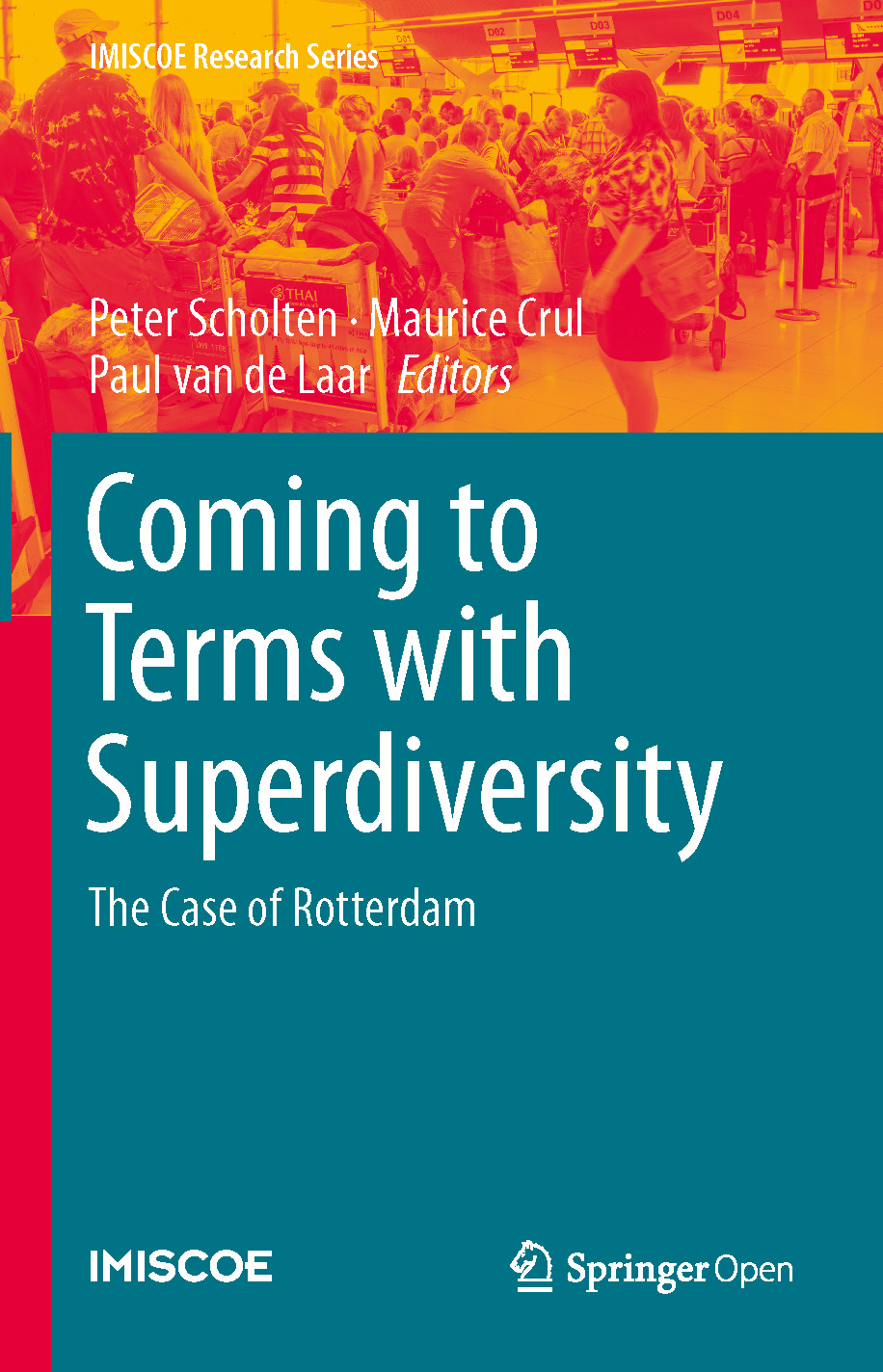Publications
Coming to Terms with Superdiversity
The Case of Rotterdam

- Category: IMISCOE Research Series
- Edited by : Peter Scholten, Maurice Crul, Paul Van de Laar
- Publisher: Springer
- Library: IMISCOE Research Series
- Year: 2019
-
download:
Review
This open access book discusses Rotterdam as clear example of a superdiverse city that is only reluctantly coming to terms with this new reality. Rotterdam, as is true for many post-industrial cities, has seen a considerable backlash against migration and diversity: the populist party Leefbaar Rotterdam of the late Pim Fortuyn is already for many years the largest party in the city. At the same time Rotterdam has become a majority minority city where the people of Dutch descent have become a numerical minority themselves. The book explores how Rotterdam is coming to terms with superdiversity, by an analysis of its migration history of the city, the composition of the migrant population and the Dutch working class population, local politics and by a comparison with Amsterdam and other cities. As such it contributes to a better understanding not just of how and why super-diverse cities emerge but also how and why the reaction to a super-diverse reality can be so different.
By focusing on different aspects of superdiversity, coming from different angles and various disciplinary backgrounds, this book will be of interest to students and scholars in migration, policy sciences, urban studies and urban sociology, as well as policymakers and the broader public.
Content
Introduction
Scholten, Peter (et al.)
Pages 1-18
- Rotterdam’s Superdiversity from a Historical Perspective (1600–1980)
Laar, Paul (et al.)
Pages 21-55 - The Second and Third Generation in Rotterdam: Increasing Diversity Within Diversity
Crul, Maurice (et al.)
Pages 57-71 - Between Choice and Stigma: Identifications of Economically Successful Migrants
Bochove, Marianne (et al.)
Pages 73-83 - Local Politics, Populism and Pim Fortuyn in Rotterdam
Ostaaijen, Julien
Pages 87-106 - Walking the Walk’ Rather Than ‘Talking the Talk’ of Superdiversity: Continuity and Change in the Development of Rotterdam’s Immigrant Integration Policies
Dekker, Rianne (et al.)
Pages 107-132 - Laboratory Rotterdam. Logics of Exceptionalism in the Governing of Urban Populations
Houdt, Friso (et al.)
Pages 133-151 - Rotterdam as a Case of Complexity Reduction: Migration from Central and Eastern European Countries
Snel, Erik (et al.)
Pages 153-170 - A Tale of Two Cities: Rotterdam, Amsterdam and Their Immigrants
Entzinger, Han
Pages 173-189 - The ‘Integration’ of People of Dutch Descent in Superdiverse Neighbourhoods
Crul, Maurice (et al.)
Pages 191-207 - Superdiversity and City Branding: Rotterdam in Perspective
Belabas, Warda (et al.)
Pages 209-223 - Conclusions: Coming to Terms with Superdiversity?
Crul, Maurice (et al.)
Pages 225-235 - Epilogue: What’s the Matter with Rotterdam?
Vertovec, Steven
Pages 237-241
Benefits
- This open access book contributes to a better understanding of how cities respond to the growing mobility and diversity of their populations
- Focusses beyond how and why superdiversity emerges in specific social settings
- Addresses the key societal questions on the diversification of cities

